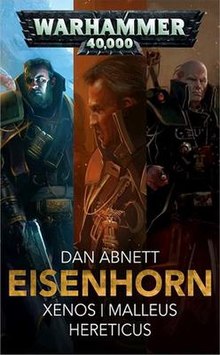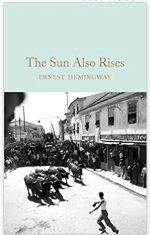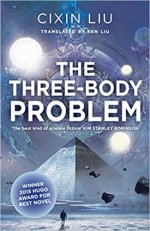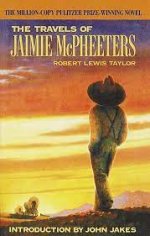-
This is a political forum that is non-biased/non-partisan and treats every person's position on topics equally. This debate forum is not aligned to any political party. In today's politics, many ideas are split between and even within all the political parties. Often we find ourselves agreeing on one platform but some topics break our mold. We are here to discuss them in a civil political debate. If this is your first visit to our political forums, be sure to check out the RULES. Registering for debate politics is necessary before posting. Register today to participate - it's free!
You are using an out of date browser. It may not display this or other websites correctly.
You should upgrade or use an alternative browser.
You should upgrade or use an alternative browser.
What Are You Reading Right Now?
- Thread starter bhkad
- Start date
- Joined
- Aug 14, 2006
- Messages
- 3,690
- Reaction score
- 5,772
- Gender
- Male
- Political Leaning
- Slightly Liberal
Just started reading this one....pretty captivating so far....

Right now just at the very beginning. The guy writes the forward to the book better than a lot of authors write their manuscripts.
So far the book is up to 1932 where the three political parties have each received roughly 1/4-1/3 of the seats but the but Hitlers administration arrests all the members of the party that makes up a larger percentage than his own.
Hitler has been installed as Chancellor....and secret agencies are being setup to spy on and arrest those opposed to Hitler....

Right now just at the very beginning. The guy writes the forward to the book better than a lot of authors write their manuscripts.
So far the book is up to 1932 where the three political parties have each received roughly 1/4-1/3 of the seats but the but Hitlers administration arrests all the members of the party that makes up a larger percentage than his own.
Hitler has been installed as Chancellor....and secret agencies are being setup to spy on and arrest those opposed to Hitler....
- Joined
- May 8, 2017
- Messages
- 2,578
- Reaction score
- 697
- Location
- New York City area
- Gender
- Male
- Political Leaning
- Very Liberal
I just finished reading The Day the World Came to Town: 9/11 in Gander, Newfoundland by Jim DeFede. It is a rare occasion that I will read a "feel-good book, i.e. throw in the warm puppy, but I did. My wife took me to see Come from Away, also about Newfoundland's hospitality to the flyers stranded by the 911 attacks, and the U.S. closure of its airspace. This closure was the start of the "security theater" of inconveniencing everyone rather than profiling in proper context.
This was nice, light reading compared to my usual. And yes, there was a "warm puppy" in the story, a stranded dog named Ralph. But I don't want too much of a spoiler alert.
This was nice, light reading compared to my usual. And yes, there was a "warm puppy" in the story, a stranded dog named Ralph. But I don't want too much of a spoiler alert.
- Joined
- Aug 19, 2014
- Messages
- 42,315
- Reaction score
- 31,576
- Location
- Tennessee, USA
- Gender
- Male
- Political Leaning
- Conservative
Read about Gander & 9/11 in an Uncle John's Bathroom Reader. They definitely set a fine example for all Newfies that day.I just finished reading The Day the World Came to Town: 9/11 in Gander, Newfoundland by Jim DeFede. It is a rare occasion that I will read a "feel-good book, i.e. throw in the warm puppy, but I did. My wife took me to see Come from Away, also about Newfoundland's hospitality to the flyers stranded by the 911 attacks, and the U.S. closure of its airspace. This closure was the start of the "security theater" of inconveniencing everyone rather than profiling in proper context.
This was nice, light reading compared to my usual. And yes, there was a "warm puppy" in the story, a stranded dog named Ralph. But I don't want too much of a spoiler alert.
- Joined
- Jan 10, 2019
- Messages
- 6,356
- Reaction score
- 8,758
- Location
- In the moment
- Gender
- Female
- Political Leaning
- Undisclosed
Just finished reading 3 books about local history.
- Joined
- Feb 24, 2013
- Messages
- 35,024
- Reaction score
- 19,484
- Gender
- Undisclosed
- Political Leaning
- Conservative

The Eisenhorn Series
by Dan Abnett
I've been rather deep into the Warhammer 40K universe for a few years now, but had never taken the time to read any of the books. After some research I settled on the Eisenhorn series. The story is part Investigator/Noir, party gritty grim sci-fi. I picked it because it sounded like the series The Dresden Files but set in the WH40K universe. Loosely that is actually what I got. They are all well written, but they also all have a somewhat common issue, that I'll get into in a minute.,
The character of Eisenhorn is an Inquisitor of the Imperium (think Spanish Inquisition but where demons are manifestly real and terrifying). The first three books take place over about 150 years, with about a 100 year jump between book 1 and 2, and then 50 years between book 2 and 3.
The book series, interestingly follows a roughly continuous story arc, but each book takes place decades apart. The first three books are written from the perspective of Eisenhorn after-action reports to his superiors, though more like memoirs than dry and formulaic, and the last book is written from a more classic perspective, but it is from the perspective of a biologist who gets caught up in an Eisenhorn investigation. This 4th book is a very interesting turn for the series.
There are a few reasons why I find book 4 interesting, partly from the perspective shift, but also from the expansion, in my mind, of the whole WH40K universe. In book 4 "The Magos" (Magos being term loosely meaning 'scientist') Eisenhorn is very old, hard and grim, by this late in life he is what is known as an "Alpha Psycher" which would also loosely translate to master wizard in a fantasy setting. The injuries and scars, physical and mental, clearly have taken their toll on him, and he is nearing the end of his life. He is a very distant and cold character in relation to the main character, but having read the series the reader will have far more understanding on Eisenhorn's character that might have been impenetrable were this book a stand alone, or require some standard speech somewhere along the way where Eisenhorn opens up to The Magos to explain why he is so grim and callous, something not necessary given the readers knowledge going in.
But the most interesting thing, as a WH40K fan, may seem simple, and formulaic in any other setting, is that the main character, who spent most of his life in isolation on a solitary assignment to document wildlife on a backwater planet, seems oblivious to (waving hands generally) all of the reality of the WH40K universe. To him demons and "The Warp" are just fairy stories, and most of the Xenos incursions, and history of the war with (waving hands generally) everything is just state propaganda. I find this interesting because I have never considered in that in the WH40K universe there would be places in the Imperium of Man that had not been touched by the war in generations. It makes some sense on reflection, the Imperium is too big to properly conceptualize. Millions of worlds, trillions of citizens, it would stand to reason that there were places that might not be touched by war for generations and grow to see the larger war as something of a fairy tale.
It's a good series and written well with great characters. It never drags, and Abnett is good at writing action that doesn't become confusing, and dialogue discussing human nature that doesn't drift into the unbelievable.
It's hard to know at this point if these books can be recommended to people who have no experience in the WH40K universe, since there is are a lot of words and concepts that are presented that I would guess are confusing to a new comer.
- Joined
- Feb 24, 2013
- Messages
- 35,024
- Reaction score
- 19,484
- Gender
- Undisclosed
- Political Leaning
- Conservative
Oops, forgot to mention the issue I had wit the Eisenhorn books. The issue is one that I find to be so common that maybe it's more a me problem.
Anyway, the issue is that the major conflicts of the books resolve too quickly. This is an issue I have had with a lot of fiction books, though. Many Heinlein books feel rushed in the final pages, like there is some deadline they need to meet for they just end them. While they are still great books, they do leave me somewhat disappointed that the end of the book is not as well care for as the build up.
This is one of the reasons I enjoy The Dresden Files series by Jim Butcher and the Monster Hunter International series by Larry Correia so much. Butcher and Correa have a knack for writing conclusions that seem just long enough, not stretched, not truncated.. they touch all the points that need to be touched. Where their books leave loose ends they are only in service to the overall story arc that will span more books. The Dresden Files is on book 17 now and still going, and Monster Hunter International is book 8.
So, just wanted to wrap up that final thought that I intended to put in the review, but forgot to...
Anyway, the issue is that the major conflicts of the books resolve too quickly. This is an issue I have had with a lot of fiction books, though. Many Heinlein books feel rushed in the final pages, like there is some deadline they need to meet for they just end them. While they are still great books, they do leave me somewhat disappointed that the end of the book is not as well care for as the build up.
This is one of the reasons I enjoy The Dresden Files series by Jim Butcher and the Monster Hunter International series by Larry Correia so much. Butcher and Correa have a knack for writing conclusions that seem just long enough, not stretched, not truncated.. they touch all the points that need to be touched. Where their books leave loose ends they are only in service to the overall story arc that will span more books. The Dresden Files is on book 17 now and still going, and Monster Hunter International is book 8.
So, just wanted to wrap up that final thought that I intended to put in the review, but forgot to...
- Joined
- Apr 18, 2013
- Messages
- 94,343
- Reaction score
- 82,723
- Location
- Barsoom
- Gender
- Male
- Political Leaning
- Independent

Egypt's Golden Couple: When Akhenaten and Nefertiti Were Gods on Earth
By John Darnell and Coleen Darnell
The authors alternately write as though living during the reign of Amenhotep IV/Akhenaten and during the present. They cover the Amarna Period in Egypt's history beginning with the end stages of the reign of Amenhotep III, the entire reign of Akhenaten and Nefertiti, and briefly touching on the short reigns of Semenkhkare, Nefernerefuaten, and Ay, and then closing out the 18th Dynasty with Tutankhamun and Horemhab. Their view is that the sun disc God Aten was always a part of the ancient Egyprian pantheon and was merely brought to the forefront by Akhneanten, but not to the total exclusion of the other Gods. This viewpoint throws cold water on the supposition that Akhenaten was the first monotheist in history. The authors also demonstrate that Akhenaten did indeed pay attention to foreign policy etc. until the very end stage of his reign.
- Joined
- Dec 15, 2012
- Messages
- 19,726
- Reaction score
- 12,267
- Location
- Lawn Guyland
- Gender
- Male
- Political Leaning
- Libertarian

Krakauer is a mountaineer and journalist. I'd previously read his book Into the Wild about Christopher McCandless and confused young man who decided to about across the country, fell in love with the idea of living off the land in the Alaskan wilderness and died there - either of starvation or by eating poisonous berries.
Into Thin Air recounts his climbing Mt Everest as part of a guided expedition - he was primarily there to write about the experience for a magazine. 8 people died descending from the summit when a severe storm unexpectedly engulfed the mountain. As far as I know it's the single worst disaster in the history of Everest.

Hemingway's classic. Wife bought me this as a beautiful almost pocket sized hardcover.
- Joined
- Apr 18, 2013
- Messages
- 94,343
- Reaction score
- 82,723
- Location
- Barsoom
- Gender
- Male
- Political Leaning
- Independent
The Escape Artist: The Man Who Broke Out of Auschwitz to Warn the World
By Jonathan Freedland - Harper - 2022 - 400pp
Rudolph Vrba. A complex hero. A forgotten story. The first witness to reveal the full truth of the Holocaust.
- Joined
- May 8, 2017
- Messages
- 2,578
- Reaction score
- 697
- Location
- New York City area
- Gender
- Male
- Political Leaning
- Very Liberal

The Escape Artist: The Man Who Broke Out of Auschwitz to Warn the World
By Jonathan Freedland - Harper - 2022 - 400pp
Rudolph Vrba. A complex hero. A forgotten story. The first witness to reveal the full truth of the Holocaust.
I read that recently.
The Escape Artist: The Man Who Broke Out of Auschwitz to Warn the World
By Jonathan Freedland - Harper - 2022 - 400pp
Rudolph Vrba. A complex hero. A forgotten story. The first witness to reveal the full truth of the Holocaust.
I learned in this book that the most famous escape artist, Harry Houdini, was a Hungarian Jew but I digress. Rudolf Vrba (born Walter Rosenberg) was deported first to Majdanek, then to Auschwitz-Birkenau in 1942. He and another he traveled with were the first two Jewish escapees from Birkenau in 1944. The first 3/4 of the book details their incarceration and escape. Early, he came to the realization that Auschwitz-Birkenau's role was as a death factory. He believed that if he could only tell the world what was happening, either the world would stop the planned massacre, or the Jews would resist, i.e. behave like "deer, not like lambs" and gum up the works on the expressway to death. Sadly, as we all know, this was not to be.Originally Posted by Excerpt from The Escape Artist by Jonathan Freedland
Jewish tradition says that to save one life is to save the whole world. By their report, Fred and Rudi saved 200,000 Budapest Jews from immediate deportation to Auschwitz. Some would die a few months later at the hands of the Arrow Cross, but many more would not. And each one of those lives, and the lives of their descendants, would not have been possible without Rudolf Vrba.
******
Rudolf Vrba was an escape artist whose achievement ranks among the very greatest of the century. By escaping from Auschwitz, he did what no Jew had ever done before - and then he told the world what he had seen. And though he never escaped Auschwitz's shadow, he lived a life in full, as a man in full. He became a scientist and a scholar, a husband, a father and a grandfather. He had helped the world, and history, know the truth of the Holocaust. And, thanks to him, tens of thousands of others went on to live lives that were long and rich, as did their children and grandchildren and great-grandchildren - so many, even he could not count them all.
As the author, writing in 2022 lays out, the leadership of the U.S., Great Britain and others knew what was happening. The book also lays out the deep betrayal by much of Jewish leadership at the time. The book The Jews Should Keep Quiet: Franklin D. Roosevelt, Rabbi Stephen S. Wise and the Holocaust,by Rafael Medoff pretty much confirms what Vrba, as "biographied" by Freedland had to say; the Jews were seen as whiny special pleaders whenever they tried to advocate for their interests and the interests of their co-religionists. Even the horrors of Birkenau were insufficient to warrant more than the typical response of the civilized world to the slaughter. This response was, to quote William Safire in another context, typical "coordinated cries of anguish and nicely orchestrated hand-wringing" (link to Safire article).
It has always been easy to verbally "virtue-signal", in modern terms. Taking actions such as bombing the rail lines leading directly to the chambers, or letting more people in, not so much. Perhaps people wanted to feel warm inside, and yet not run the risk of millions of penniless Jewish refugees coming in.
- Joined
- Feb 9, 2011
- Messages
- 19,990
- Reaction score
- 7,365
- Gender
- Male
- Political Leaning
- Libertarian
Listening to a book called A Bad Spell in Yurt. Yurt is the name of a kingdom. Interesting so far. Kind of a mix of medieval and modern times in that they are using spell driven phones and printing presses, and there is a wizarding school. More uni than Hogwarts.
- Joined
- Aug 17, 2013
- Messages
- 2,018
- Reaction score
- 3,411
- Location
- Shanghai, China
- Gender
- Male
- Political Leaning
- Undisclosed
- Joined
- May 8, 2017
- Messages
- 2,578
- Reaction score
- 697
- Location
- New York City area
- Gender
- Male
- Political Leaning
- Very Liberal
Inside the Third Reich by Albert Speer, excerpt:
When the book came out in 1969-70 (there was apparently an early release in Europe in October 1969, then release as translated in late August 1970) there was fawning press coverage about the "good Nazi." Speer got his start as Hitler's architect, and then progressed to be a director of armaments. Apparently the book's contents have become what is accepted history of the Third Reich. Unfortunately to some extent it humanizes Hitler, and throws a lot of blame on Goering and Bormann.
Speer, Guderian and some others were technocrats, and not monsters on the scale of Hitler, Mengele or Goebbels, they were, at best, enablers. After Kristallnacht, in my opinion, it was not possible to be seriously ignorant about the utter evil.
The writing was, all things considered, pretty good. One finds themselves rooting for Hitler, the same way Speer, for most of his life, lived for Hitler's approval the same way a dog lives for the pats of his owner. I am glad I read it, since I've been staring at it on my shelf since recovering it from my parents' library after their death.
All the same, there are not "two sides to every story." It is not a book I will keep for re-reading, or one that I will recommend to my friends. And I cannot give the book five stars, though in a sense it is must reading.
Try as one might, one cannot humanize Hitler. Inside the Third Reich by Albert Speer attempts mightily to do so. He wrote the book after serving a 20 year term in Spandau Prison. He was perhaps able to justify himself well enough not to ingest lethal poison the way many of his compatriots did. There are other books about people who lived high and mighty, but ended shattered, such as The Great Gatsby by F. Scott Fitzgerald. Those, however, were novels, not true tales about someone who launched perhaps the world's greatest slaughter, WWII combined with the Holocaust.Albert Speer said:IN THE LAST WEEKS OF HIS LIFE, HITLER SEEMED TO HAVE BROKEN OUT OF THE rigidity which had gradually overcome him during the preceding years.He became more accessible again and could even tolerate the expression of dissent. As late as the winter of 1944, it would have been inconceivable for him to enter into a discussion of the prospects of the war with me.
Then, too, his flexibility on the question of the scorched earth policy would have been unthinkable, or the quiet way he went over my radio speech.
He was once more open to arguments he would not have listened to a year ago. But this greater softness sprang not from a relaxation of tension.
Rather, it was dissolution. He gave the impression of a man whose whole purpose had been destroyed, who was continuing along his established orbit only because of the kinetic energy stored within him. Actually, he had let go of the controls and was resigned to what might come.
There was actually something insubstantial about him. But this was perhaps a permanent quality he had. In retrospect I sometimes ask myself whether this intangibility, this insubstantiality, had not characterized him from early youth up to the moment of his suicide. It sometimes seems to me that his seizures of violence could come upon him all the more strongly because there were no human emotions in him to oppose them. He simply could not let anyone approach his inner being because that core was lifeless, empty.
When the book came out in 1969-70 (there was apparently an early release in Europe in October 1969, then release as translated in late August 1970) there was fawning press coverage about the "good Nazi." Speer got his start as Hitler's architect, and then progressed to be a director of armaments. Apparently the book's contents have become what is accepted history of the Third Reich. Unfortunately to some extent it humanizes Hitler, and throws a lot of blame on Goering and Bormann.
Speer, Guderian and some others were technocrats, and not monsters on the scale of Hitler, Mengele or Goebbels, they were, at best, enablers. After Kristallnacht, in my opinion, it was not possible to be seriously ignorant about the utter evil.
The writing was, all things considered, pretty good. One finds themselves rooting for Hitler, the same way Speer, for most of his life, lived for Hitler's approval the same way a dog lives for the pats of his owner. I am glad I read it, since I've been staring at it on my shelf since recovering it from my parents' library after their death.
All the same, there are not "two sides to every story." It is not a book I will keep for re-reading, or one that I will recommend to my friends. And I cannot give the book five stars, though in a sense it is must reading.
Last edited:
- Joined
- Mar 30, 2021
- Messages
- 17,117
- Reaction score
- 22,966
- Location
- Alone in the Pale Moonlight
- Gender
- Male
- Political Leaning
- Other
I want this book.
- Joined
- Sep 10, 2020
- Messages
- 9,975
- Reaction score
- 17,439
- Location
- New England, United States
- Gender
- Female
- Political Leaning
- Very Liberal
I just finished Circe by Madeline Miller.
- Joined
- Sep 10, 2020
- Messages
- 9,975
- Reaction score
- 17,439
- Location
- New England, United States
- Gender
- Female
- Political Leaning
- Very Liberal
This may be my favorite book of all time.View attachment 67440663
Hemingway's classic. Wife bought me this as a beautiful almost pocket sized hardcover.
- Joined
- Jul 2, 2014
- Messages
- 21,051
- Reaction score
- 3,212
- Gender
- Undisclosed
- Political Leaning
- Undisclosed
Les Miserables
- Joined
- Aug 19, 2014
- Messages
- 42,315
- Reaction score
- 31,576
- Location
- Tennessee, USA
- Gender
- Male
- Political Leaning
- Conservative
Just finished Mount Dragon by Douglas Preston and Lincoln Child:
A Bio-tech company with an Area 51-type lab in the New Mexican desert where it's scientists are working on (among other things) a solution to find the perfect flu vaccine that can be given to people and genetically passed on (it would require re-writing Human DNA). In it's current form, it's highly contagious & very deadly. Meanwhile, one by one, staff at the facility are going bonkers due to a previously unknown side effect of an artificial blood product that the company invented at the same facility (all the staff had an infusion of the stuff as a PR stunt) and is close to making available to the public.
A Bio-tech company with an Area 51-type lab in the New Mexican desert where it's scientists are working on (among other things) a solution to find the perfect flu vaccine that can be given to people and genetically passed on (it would require re-writing Human DNA). In it's current form, it's highly contagious & very deadly. Meanwhile, one by one, staff at the facility are going bonkers due to a previously unknown side effect of an artificial blood product that the company invented at the same facility (all the staff had an infusion of the stuff as a PR stunt) and is close to making available to the public.
- Joined
- May 8, 2017
- Messages
- 2,578
- Reaction score
- 697
- Location
- New York City area
- Gender
- Male
- Political Leaning
- Very Liberal
I just finished reading A Personal Odyssey by Thomas Sowell.Thomas Sowell from A Personal Odyssey said:One day, a man had a heart attack at around 5 PM, on the sidewalk outside the Public Health Service. He was taken inside to the nurse's room, where he was asked if he were a government employee. If he were, he would have been eligible to be taken to the medical facility there. Unfortunately, he was not, so a phone call was made to a local hospital to send an ambulance. By the time this ambulance made its way through miles of downtown Washington rush-hour traffic, the man was dead. He died waiting for a doctor, in a building full of doctors.
Nothing so dramatized for me the nature of a bureaucracy and its emphasis on procedures, rather than results.
As one can see from the above-quote, this is a gentleman who has no patience for convention or stupidity. This is an autobiography. What else can one say but that this man, and his autobiography, are exceptional? From dire rural poverty in North Carolina to the streets of ghetto New York, this man transformed himself from a (Stuyvesant) high school dropout to a Harvard and U. of Chicago Economics graduate. While hovering on the outskirts of public involvement, he has become a prolific author. His opinions are iconoclastic and unique, similar to an economist on the other side of the political spectrum, John Kenneth Galbraith.
A worthwhile, five-star read.
- Joined
- Sep 17, 2013
- Messages
- 7,197
- Reaction score
- 4,680
- Gender
- Male
- Political Leaning
- Independent
I'm stuck reading dickensian Nathan Lowell space operas while I wait for something, ANYTHING new from Joe Abercrombie.
I'll go ahead and beg any fantasy fans that haven't to give him a look.
Best hard fantasy since ASOIAF, back when that was a book thing. And this guy even completes his stories!
I'll go ahead and beg any fantasy fans that haven't to give him a look.
Best hard fantasy since ASOIAF, back when that was a book thing. And this guy even completes his stories!


